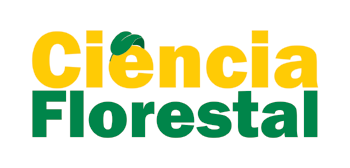ABSTRACT
The influence of reduced impact logging was evaluated on the growth phases of a terra firme forest in the Paragominas region, state of Pará, that was logged considering two intensities of timber harvesting. Data were collected in 36 permanent sample plots (0.25ha) randomly distributed among treatments (T1 - Logged forest, harvesting the stem of commercial trees; T2 - Logged forest, harvesting the stem and coarse woody debris) and control (T0 unlogged forest). Three growth phases of the forest were considered: mature (DBH> 40cm); building forest (10cm < DBH < 40cm); and gaps (occurrence of a canopy gap and a few or no tree with DBH > 10cm). The homogeneity of variances of sub-plots between treatments, growth phases and years was tested by the Bonferroni test, according to the statistics of Bartlett and Levene. An analysis of variance was applied on the number of sub-plots by phases, years and treatments at a 0.005 significance level. The Tukey test was applied for analyzing the interaction between the phases and years. Before logging the percentage of growth phases were: 57.0% building forest, 38.9% mature forest and 4.1% canopy gaps. Logging reduced the areas of mature forest and building forest, increasing the number of canopy gaps, but this increase had no statistical difference. One year after logging the area of mature forest (38.4%) and building forest (53.1%) increased while the areas of gaps (8.4%) decreased. Three years after logging the percentage of mature forest (37.1%), building forest (57.9%) and gaps (5.0%) were similar to those found before logging. The forest growth phases were not influenced by logging, over the study period. The study forest showed that it is able to grow, closing the canopy gaps, even in a short period of time.
Keywords:
forest dynamics; monitoring forest; permanent sample plots; canopy gaps
